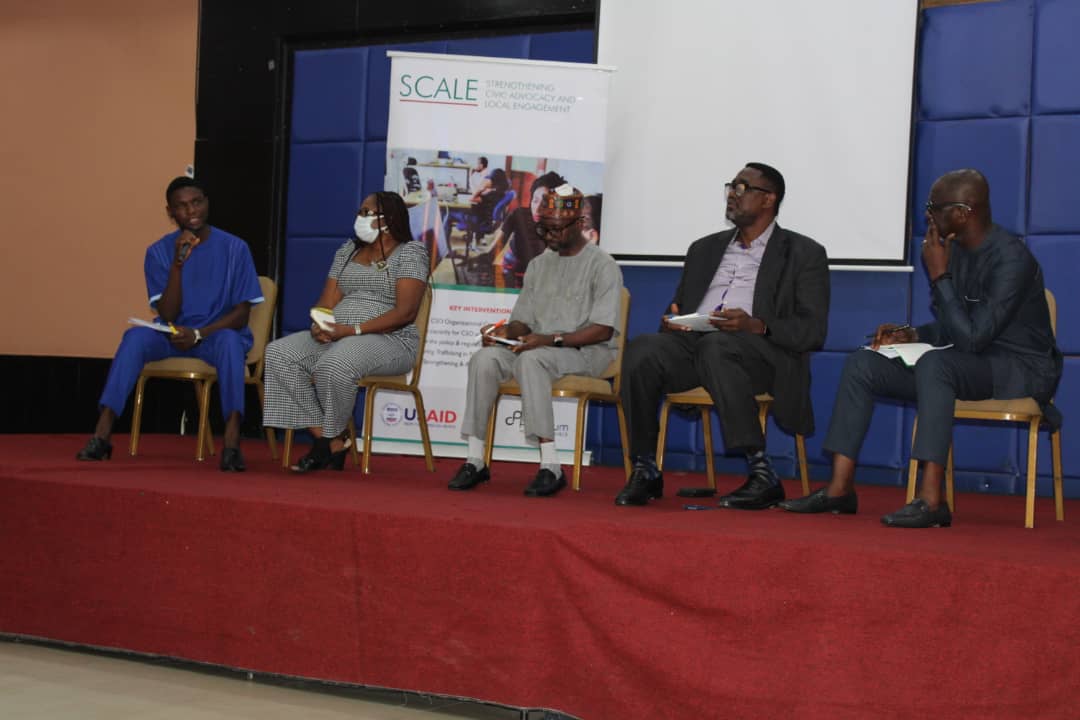Determined to safeguard the online civic space ahead of the 2023 elections and beyond, civil society leaders and key private sector players came together recently at a 2-day multi-stakeholder dialogue to begin the process of forging multisectoral partnerships for countering threats to digital spaces, especially mis/disinformation during and around the 2023 General Elections. On the first day of the dialogue organized by USAID-SCALE’s Palladium in partnership with the National Democratic Institute (NDI), S4C’s Legal Officer, Patrick Allam, gave an overview of the digital civic space in Nigeria, highlighting how the private sector, particularly, telecommunication companies (Telcos), internet service providers (ISPs), content moderation platforms, private companies including foreign suppliers of surveillance technologies, have enhanced the ability of state agents to monitor the movement of citizens, to track activities of civic actors online, intercept private communications, and limit the ability of civic actors to organize, associate and assemble freely on online platforms. There is growing perception that these restrictions may heighten during election periods.
There were presentations, moderated panel discussions and group work over the two days. Patrick Allam was part of the panel discussion that examined opportunities and prospects for safeguarding the digital civic space. The panel included representatives from Nigerian Communication Commission (NCC), Association of Licensed Telecommunication Operators of Nigeria (ALTON), the Association of Telecommunications Companies of Nigeria (ATCON), MTN, Policy and Legal Advocacy Center (PLAC). The panel examined how to strengthen partnerships between civil society organizations and telecommunications service providers ahead of 2023 elections and beyond. The telecommunication companies outlined the various challenges they face which range from multiple taxation to bureaucratic bottlenecks from regulators and state governors. The civil society organizations (CSOs) proposed a partnership in which they can leverage on their expertise and experience to advocate for systemic reforms that can curtail these obstructions.
Key recommendations proposed at the end of the dialogue include:
- The need for government agencies, BMOs and CSOs to partner and share information about key issues and developments in order to achieve mutual support for each partner.
- The importance of creating a digital situation room for convening public/private/civil society meet-points to counter misinformation and disinformation. In this regard, ALTON will facilitate the inclusion of the Safeguard Online Civic Space group into the INEC/NCC Working Group on the 2023 Elections.
- The need to engage government and private business organisations with a business-like/value-add-on propositions from a mutual beneficial front.
- Increase stakeholder engagement for voter education to improve the participation of youth and marginalized groups in the electoral process





















